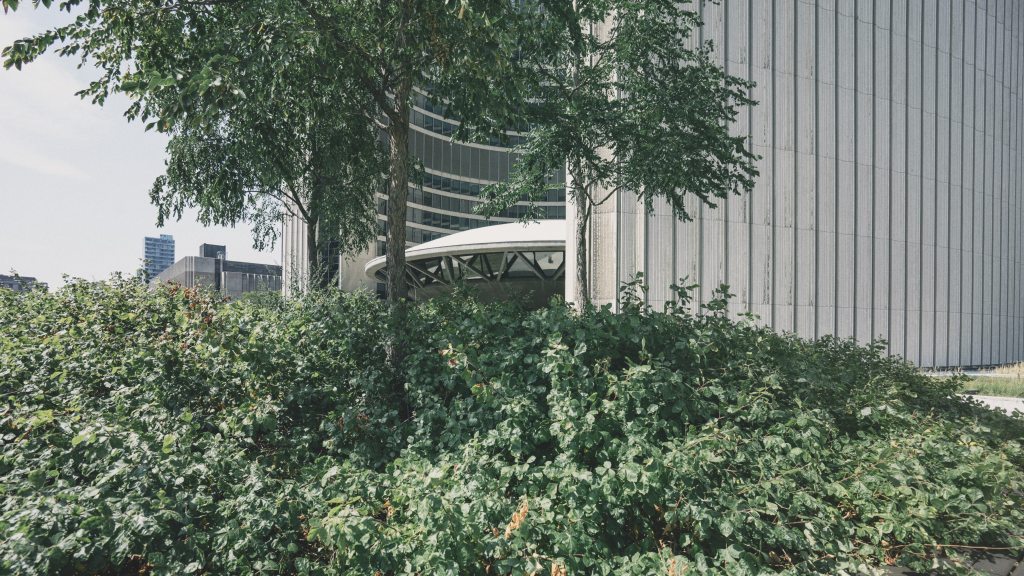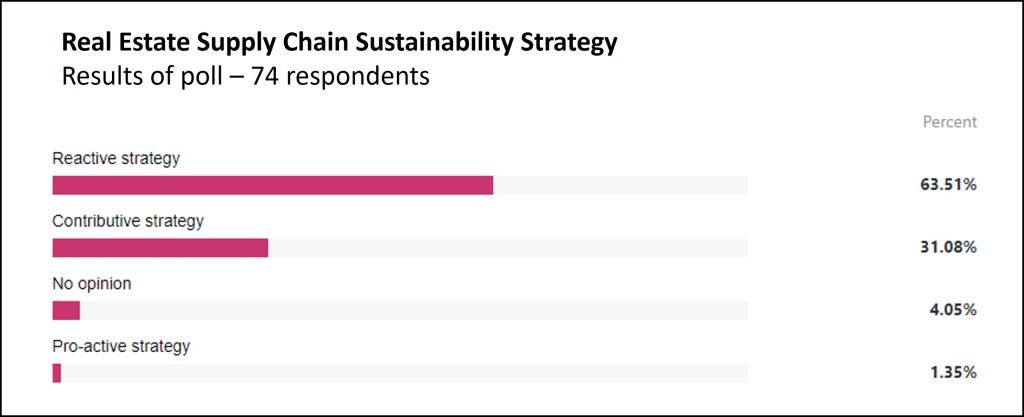
Supply chain sustainability in real estate is a journey not a destination!
In the real estate industry there are many ecological, social, governance and economic aspects interacting with each other on a local level. Learning is therefore for every company in the supply chain an important part of the journey.
As we discussed in the previous blog, a key element to learning is the strategy that participants in the supply chain pursue. In the previous blog there was a poll question about the strategy. The outcome of the poll is presented in table 1, which shows that the majority of the respondents view the supply chain sustainability strategy in their practice as reactive. This means there is a focus on sustainability codes of conduct, that relationships are transactional and learning is predominantly single-loop.
More collaborative strategies, such as contributive strategies and pro-active strategies, are less usual as the poll indicates.
Table 1: How respondents view supply chain sustainability strategy in their practice.

Learning processes regarding supply chain sustainability are however not only dependent on the strategy. Sustainability supply chain learning is also dependent on the competitiveness and the sustainability pressures by the government and/or clients. In a competitive environment where the sustainability pressures are low, there is not really an incentive to increase learning activities. As pressures from governments and clients are increasing there is a need to increase the capacity of stakeholders to make more sustainable decisions in the supply chain (Linde et al., June 2022). This message was formulated in the Stockholm+50 international meeting in June 2022 in partnership with the World Business Council for
Sustainable Development (WBCSD) and Stockholm Environment Institute (SEI).
Last but not least, sustainability supply chain learning needs an approach toward learning itself. Companies should have a learning plan that enables a good learning practice where different types of learning can take place on different levels. This means that there is room for learning from past experiences as well as for learning from the exploration of new ideas at the organizational level, inter-organizational level, and supply chain level.
Most organizations in the real estate industry have a learning (innovation) agenda and are active in industry-related associations where there is a clear focus on sustainability. What every organization should ask themselves is if the agenda ensures a real comprehensive approach to learning. Such an approach should include a clear plan with goals and milestones based on the selected supply chain sustainability strategy. The learning process should facilitate different types of learning and different levels of learning at the organizational level, the inter-organizational level and the supply chain level.
Literature
Cormack, A., Thomé, A. M. T., & Silvestre, B. (2021). An integrative conceptual framework for supply chain sustainability learning: A process-based approach. Journal of Cleaner Production, Volume 320, 128675.
Gosling, J., Jia, F., Gong, Y., & Brown, S. (2016). The role of supply chain leadership in the learning of sustainable practice: toward an integrated framework. Journal of Cleaner Production, 137, 1458-1469.
Linde, L., Lewis, A. N., & Sanchez, F. (2022). Towards a sustainable global construction and buildings value chain.
Photo: Pexels.com
